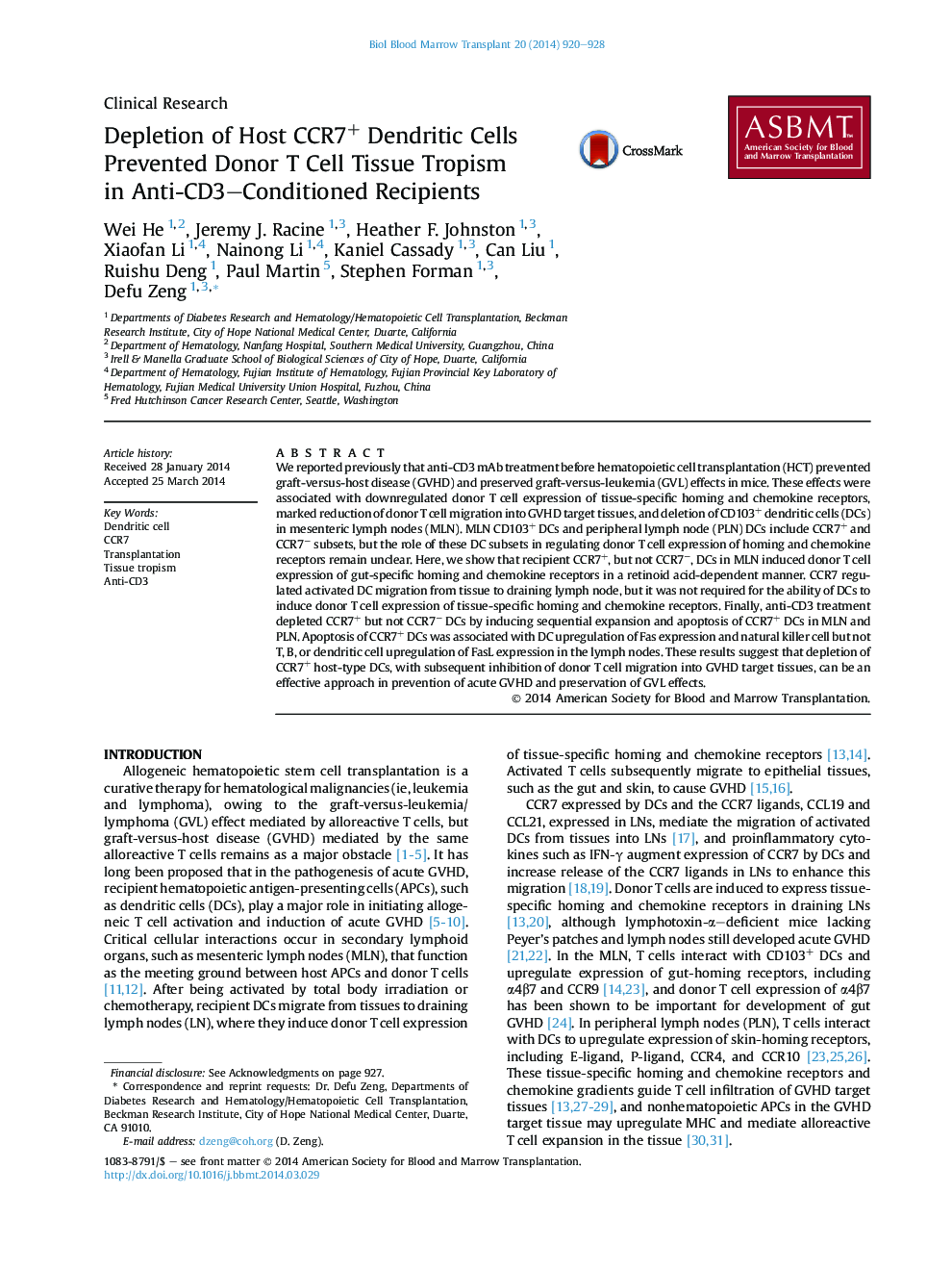| Article ID | Journal | Published Year | Pages | File Type |
|---|---|---|---|---|
| 2102304 | Biology of Blood and Marrow Transplantation | 2014 | 9 Pages |
We reported previously that anti-CD3 mAb treatment before hematopoietic cell transplantation (HCT) prevented graft-versus-host disease (GVHD) and preserved graft-versus-leukemia (GVL) effects in mice. These effects were associated with downregulated donor T cell expression of tissue-specific homing and chemokine receptors, marked reduction of donor T cell migration into GVHD target tissues, and deletion of CD103+ dendritic cells (DCs) in mesenteric lymph nodes (MLN). MLN CD103+ DCs and peripheral lymph node (PLN) DCs include CCR7+ and CCR7− subsets, but the role of these DC subsets in regulating donor T cell expression of homing and chemokine receptors remain unclear. Here, we show that recipient CCR7+, but not CCR7−, DCs in MLN induced donor T cell expression of gut-specific homing and chemokine receptors in a retinoid acid-dependent manner. CCR7 regulated activated DC migration from tissue to draining lymph node, but it was not required for the ability of DCs to induce donor T cell expression of tissue-specific homing and chemokine receptors. Finally, anti-CD3 treatment depleted CCR7+ but not CCR7− DCs by inducing sequential expansion and apoptosis of CCR7+ DCs in MLN and PLN. Apoptosis of CCR7+ DCs was associated with DC upregulation of Fas expression and natural killer cell but not T, B, or dendritic cell upregulation of FasL expression in the lymph nodes. These results suggest that depletion of CCR7+ host-type DCs, with subsequent inhibition of donor T cell migration into GVHD target tissues, can be an effective approach in prevention of acute GVHD and preservation of GVL effects.
